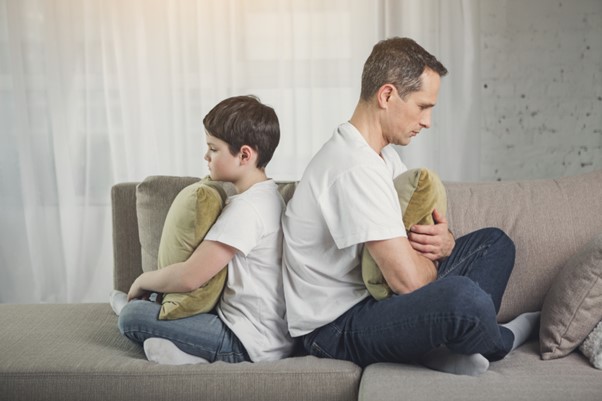Navigating Parenthood with Anxiety: Strategies and Insights

Navigating Parenthood with Anxiety: Strategies and Insights
Introduction
Parenting is inherently stressful, but for parents with anxiety, it can be particularly challenging. Managing anxiety while ensuring a nurturing environment for children is a delicate balance. This article explores the causes and effects of parental anxiety and offers strategies to manage it effectively.
Causes and Effects of Parental Anxiety
Common Triggers
Parental anxiety can be triggered by various factors, including concerns about children’s health, safety, and future, as well as financial pressures and personal health issues [1].
Impact on Children
Children of anxious parents are significantly more likely to develop anxiety disorders themselves. This can manifest as generalized anxiety, social anxiety, or specific phobias [2,4]. Additionally, the home environment can be affected, leading to a cycle of stress and anxiety within the family [3].
Elaborated Article: Strategies for Managing Parental Anxiety
Parenting comes with inherent stresses, and for parents dealing with anxiety, these challenges can feel overwhelming. Here are detailed strategies to help manage parental anxiety effectively:
- Mindfulness and Relaxation Techniques Incorporating mindfulness practices like meditation and deep-breathing exercises promotes relaxation and reduces stress levels. These techniques encourage parents to stay present and manage anxious thoughts 6.
- Professional Support Cognitive-behavioral therapy (CBT) and counseling offer structured approaches to managing anxiety. Therapists provide personalized strategies to help parents identify triggers, develop coping mechanisms, and foster resilience [11].
- Healthy Lifestyle Choices Regular physical activity, a balanced diet rich in nutrients, and sufficient sleep are crucial for mental well-being. These practices not only improve overall health but also help regulate anxiety levels [9].
- Open Communication Creating a supportive environment through open discussions about anxiety within the family can reduce stigma and increase understanding. Educating children about anxiety empowers them to recognize and manage their own emotions [8].
- Setting Realistic Expectations Avoiding the pursuit of perfection and instead focusing on achievable goals fosters a healthier outlook. Parents should aim for progress rather than flawless outcomes, reducing pressure and anxiety [5].
Conclusion
Parental anxiety is a significant challenge, but with mindfulness, professional support, healthy lifestyle choices, open communication, and realistic expectations, parents can effectively manage their anxiety. Creating a nurturing environment benefits both parents and children, promoting overall family well-being.
🌐 Sources
- MedicalNewsToday – Parental anxiety: Causes and effects
- Talkspace – Raised by Anxious Parents? Here’s How it Might Be …
- FHE Rehab – Growing Up with a Parent with Anxiety Disorder
- NCBI – Environmental transmission of generalized anxiety …
- NYU Langone – Proven Strategies for Anxious Parents Who May Pass Their …
- Born Fabulous – How to Manage Stress as a Parent: Tips for Staying Calm
- Therapy for Moms – How to Deal with Parenting Stress in 10 Steps
- Access Psych – Anxiety in children and how parents can support their child
- Beyond Blue – Anxiety management strategies
- Help Guide – Anxiety in Children and Teens: A Parent’s Guide
- NYU Langone – Proven Strategies for Anxious Parents Who May Pass Their








Responses